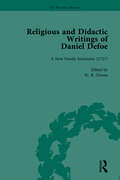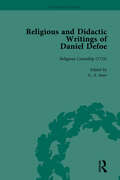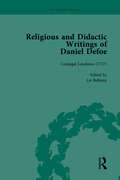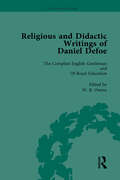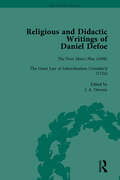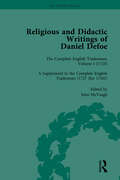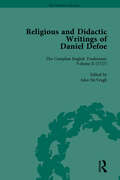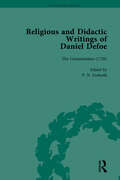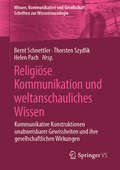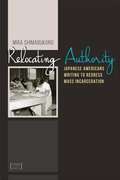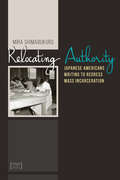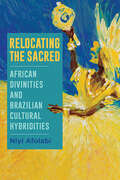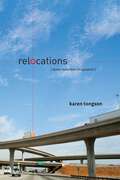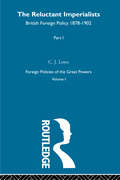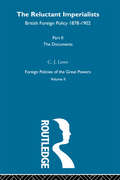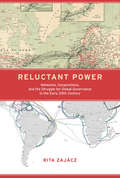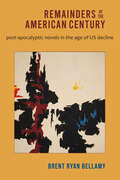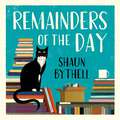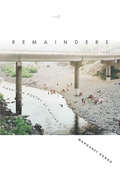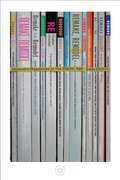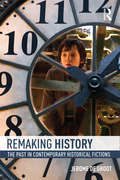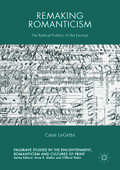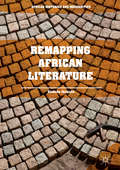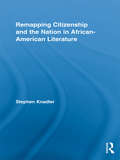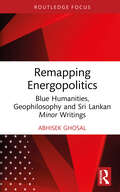- Table View
- List View
Religious and Didactic Writings of Daniel Defoe, Part I Vol 3
by Liz Bellamy J A Downie W R Owens P N FurbankIncludes ten volumes, which are suitable for Defoe scholars and academics of eighteenth-century history, religion and literature. This set offers readers texts and a wealth of editorial matter, including introductions, explanatory notes and a consolidated index to the ten volumes.
Religious and Didactic Writings of Daniel Defoe, Part I Vol 4
by Liz Bellamy J A Downie W R Owens P N FurbankIncludes ten volumes, which are suitable for Defoe scholars and academics of eighteenth-century history, religion and literature. This set offers readers texts and a wealth of editorial matter, including introductions, explanatory notes and a consolidated index to the ten volumes.
Religious and Didactic Writings of Daniel Defoe, Part I Vol 5
by Liz Bellamy J A Downie W R Owens P N FurbankIncludes ten volumes, which are suitable for Defoe scholars and academics of eighteenth-century history, religion and literature. This set offers readers texts and a wealth of editorial matter, including introductions, explanatory notes and a consolidated index to the ten volumes.
Religious and Didactic Writings of Daniel Defoe, Part II vol 10
by G A Starr W R Owens P N Furbank John McVeaghDefoe's era saw much popular interest in the instructional handbook and behaviour manual. Bringing together a collection of Daniel Defoe's most important and influential instructional treatises, this work serves as an addition to the "Works of Daniel Defoe" from the "Pickering Masters" series.
Religious and Didactic Writings of Daniel Defoe, Part II vol 6
by G A Starr W R Owens P N Furbank John McVeaghDefoe's era saw much popular interest in the instructional handbook and behaviour manual. Bringing together a collection of Daniel Defoe's most important and influential instructional treatises, this work serves as an addition to the "Works of Daniel Defoe" from the "Pickering Masters" series.
Religious and Didactic Writings of Daniel Defoe, Part II vol 7
by G A Starr W R Owens P N Furbank John McVeaghDefoe's era saw much popular interest in the instructional handbook and behaviour manual. Bringing together a collection of Daniel Defoe's most important and influential instructional treatises, this work serves as an addition to the "Works of Daniel Defoe" from the "Pickering Masters" series.
Religious and Didactic Writings of Daniel Defoe, Part II vol 8
by G A Starr W R Owens P N Furbank John McVeaghDefoe's era saw much popular interest in the instructional handbook and behaviour manual. Bringing together a collection of Daniel Defoe's most important and influential instructional treatises, this work serves as an addition to the "Works of Daniel Defoe" from the "Pickering Masters" series.
Religious and Didactic Writings of Daniel Defoe, Part II vol 9
by G A Starr W R Owens P N Furbank John McVeaghDefoe's era saw much popular interest in the instructional handbook and behaviour manual. Bringing together a collection of Daniel Defoe's most important and influential instructional treatises, this work serves as an addition to the "Works of Daniel Defoe" from the "Pickering Masters" series.
Religiöse Kommunikation und weltanschauliches Wissen: Kommunikative Konstruktionen unabweisbarer Gewissheiten und ihre gesellschaftlichen Wirkungen (Wissen, Kommunikation und Gesellschaft)
by Bernt Schnettler Thorsten Szydlik Helen PachDer Band exploriert die systematischen Bezüge zwischen Wissens- und Religionssoziologie. Zunächst enthält er daher die deutsche Erstübersetzung des klassischen Aufsatzes zu diesem Thema von Berger und Luckmann aus dem Jahr 1965. Das Spektrum der Beiträge umfasst aktuelle Forschungen über diverse Formen religiöser Kommunikation und weltanschaulichen Wissens aus drei Bereichen: Erstens empirische Studien zu religiösen und weltanschaulichen Kommunikationsgattungen, Veranstaltungsformen und Diskursen, zweitens Beiträge zu methodischen Zugriffen für die Analyse religiöser Kommunikation und die Weltanschauungs-analyse sowie drittens theoretische Beiträge zu wissenssoziologischen Aspekten religiösen und weltanschaulichen Wissens. Dabei werden soziologische sowie religionswissenschaftliche und linguistische Perspektiven eingenommen.Der InhaltWissens- und Diskursforschung • Staatliche Interventionen • Naturwissenschaft, Sinnkonstruktion und Weltanschauung • Erlösungskommunikation • Transformation religiöser Sinnresiduen • Gattungen der Sinnvermittlung • Rhetoriken der Normativität • Unsichtbare Religion in Massenereignissen Die Herausgeber*innenProf. Dr. Bernt Schnettler ist Inhaber des Lehrstuhls Kultur- und Religionssoziologie an der Universität Bayreuth. Thorsten Szydlik ist Wissenschaftlicher Mitarbeiter am Institut für Soziologie der Universität Marburg.Helen Pach ist Wissenschaftliche Mitarbeiterin am Lehrstuhl Kultur- und Religionssoziologie an der Universität Bayreuth.
Relocating Authority
by Mira Shimabukuro"Relocating Authority examines the ways Japanese Americans have continually used writing to respond to the circumstances of their community's mass imprisonment during World War II. Using both Nikkei cultural frameworks and community-specific history for methodological inspiration and guidance, Mira Shimabukuro shows how writing was used privately and publicly to individually survive and collectively resist the conditions of incarceration.Examining a wide range of diverse texts and literacy practices such as diary entries, note-taking, manifestos, and multiple drafts of single documents, Relocating Authority draws upon community archives, visual histories, and Asian American history and theory to reveal the ways writing has served as a critical tool for incarcerees and their descendants. Incarcerees not only used writing to redress the "internment" in the moment but also created pieces of text that enabled and inspired further redress long after the camps had closed.Relocating Authority highlights literacy's enduring potential to participate in social change and assist an imprisoned people in relocating authority away from their captors and back to their community and themselves. It will be of great interest to students and scholars of ethnic and Asian American rhetorics, American studies, and anyone interested in the relationship between literacy and social justice."
Relocating Authority: Japanese Americans Writing to Redress Mass Incarceration (Nikkei in the Americas)
by Mira ShimabukuroRelocating Authority examines the ways Japanese Americans have continually used writing to respond to the circumstances of their community’s mass imprisonment during World War II. Using both Nikkei cultural frameworks and community-specific history for methodological inspiration and guidance, Mira Shimabukuro shows how writing was used privately and publicly to individually survive and collectively resist the conditions of incarceration. Examining a wide range of diverse texts and literacy practices such as diary entries, note-taking, manifestos, and multiple drafts of single documents, Relocating Authority draws upon community archives, visual histories, and Asian American history and theory to reveal the ways writing has served as a critical tool for incarcerees and their descendants. Incarcerees not only used writing to redress the “internment” in the moment but also created pieces of text that enabled and inspired further redress long after the camps had closed. Relocating Authority highlights literacy’s enduring potential to participate in social change and assist an imprisoned people in relocating authority away from their captors and back to their community and themselves. It will be of great interest to students and scholars of ethnic and Asian American rhetorics, American studies, and anyone interested in the relationship between literacy and social justice.
Relocating the Sacred: African Divinities and Brazilian Cultural Hybridities (SUNY series, Afro-Latinx Futures)
by Niyi AfolabiAlthough Brazil is home to the largest African diaspora, the religions of its African descendants have often been syncretized and submerged, first under the force of colonialism and enslavement and later under the spurious banner of a harmonious national Brazilian character. Relocating the Sacred argues that these religions nevertheless have been preserved and manifested in a strategic corpus of shifting masks and masquerades of Afro-Brazilian identity. Following the re-Africanization process and black consciousness movement of the 1970s to 1990s, Afro-Brazilians have questioned racial democracy, seeing how its claim to harmony actually dispossesses them of political power. By embracing African deities as a source of creative inspiration and resistance, Afro-Brazilians have appropriated syncretism as a means of not only popularizing African culture but also decolonizing themselves from the past shame of slavery. This book maps the role of African heritage in—and relocation of the sacred to—three sites of Brazilian cultural production: ritual altars, literature, and carnival culture.
Relocations: Queer Suburban Imaginaries (Sexual Cultures #40)
by Karen TongsonWhat queer lives, loves and possibilities teem within suburbia’s little boxes? Moving beyond the imbedded urban/rural binary, Relocations offers the first major queer cultural study of sexuality, race and representation in the suburbs. Focusing on the region humorists have referred to as “Lesser Los Angeles”—a global prototype for sprawl—Karen Tongson weaves through suburbia’s “nowhere”spaces to survey our spatial imaginaries: the aesthetic, creative and popular materials of the new suburbia.Across southern California’s freeways, beneath its overpasses and just beyond its winding cloverleaf interchanges, Tongson explores the improvisational archives of queer suburban sociability, from multimedia artist Lynne Chan’s JJ Chinois projects and the amusement park night-clubs of 1980s Orange County to the imperial legacies of the region known as the Inland Empire. By taking a hard look at the cosmopolitanism historically considered de rigeur for queer subjects, while engaging with the so-called “New Suburbanism” that has captivated the national imaginary in everything from lifestyle trends to electoral politics, Relocations radically revises our sense of where to see and feel queer of color sociability, politics and desire.
Reluctant Imperialists Pt1 V1: British Foreign Policy 1878-1902 (Foreign Policies Of The Great Powers Ser. #Vol. 1)
by LoweFirst published in 2001. Routledge is an imprint of Taylor & Francis, an informa company.
Reluctant Imperialists Pt2 V2: British Foreign Policy 1878-1902 (Foreign Policies Of The Great Powers Ser. #Vol. 1)
by LoweFirst Published in 2001. Routledge is an imprint of Taylor & Francis, an informa company.
Reluctant Power: Networks, Corporations, and the Struggle for Global Governance in the Early 20th Century (Information Policy)
by Rita ZajaczHow early twentieth-century American policymakers sought to gain control over radiotelegraphy networks in an effort to advance the global position of the United States.In Reluctant Power, Rita Zajácz examines how early twentieth century American policymakers sought to gain control over radiotelegraphy networks in an effort to advance the global position of the United States. Doing so, she develops an analytical framework for understanding the struggle for network control that can be applied not only to American attempts to establish a global radio network in the early twentieth century but also to current US efforts to retain control of the internet.In the late nineteenth century, Britain was seen to control both the high seas and the global cable communication network under the sea. By the turn of the twentieth century, Britain's geopolitical rivals, including the United States, looked to radiotelegraphy that could circumvent Britain's dominance. Zajácz traces policymakers' attempts to grapple with both a new technology—radiotelegraphy—and a new corporate form: the multinational corporation, which managed the network and acted as a crucial intermediary. She argues that both foreign policy and domestic radio legislation were shaped by the desire to harness radiotelegraphy for geopolitical purposes and reveals how communication policy and aspects of the American legal system adjusted to the demands of a rising power. The United States was a reluctant power during the early twentieth century, because policymakers were unsure that companies headquartered in the United States were sufficiently American and doubted that their strategies served the national interest.
Remainders of the American Century: Post-Apocalyptic Novels in the Age of US Decline
by Brent Ryan BellamyThis book explores the post-apocalyptic novel in American literature from the 1940s to the present as reflections of a growing anxiety about the decline of US hegemony. Post-apocalyptic novels imagine human responses to the aftermath of catastrophe. The shape of the future they imagine is defined by "the remainder," when what is left behind expresses itself in storytelling tropes. Since 1945 the portentous fate of the United States has shifted from the irradiated future of nuclear holocaust to the saltwater wash of global warming. Theorist Brent Ryan Bellamy illuminates the political unconscious of post-apocalyptic writing, drawing on a range of disciplinary fields, including science fiction studies, American studies, energy humanities research, and critical race theory. From George R. Stewart's Earth Abides to N.K. Jemisin's The Fifth Season, Remainders of the American Century describes the tension between a reactionary impulse and the progressive impetus for a new world."Brent Ryan Bellamy weaves a rich and diverse tapestry of fictions, all of which navigate the changing valences of apocalypse, survival, and remainders during the rise and fall of the post-Second World War 'American Century.' Given the global post-apocalyptic reality we all currently inhabit, this is a timely and significant study.""Brent Ryan Bellamy weaves a rich and diverse tapestry of fictions, all of which navigate the changing valences of apocalypse, survival, and remainders during the rise and fall of the post-Second World War 'American Century.' Given the global post-apocalyptic reality we all currently inhabit, this is a timely and significant study." —Gerry Canavan, author of Octavia E. Butler
Remainders of the Day: More Diaries from The Bookshop, Wigtown
by Shaun BythellThe Bookshop in Wigtown is a bookworm's idyll - with thousands of books across nearly a mile of shelves, a real log fire, and Captain, the bookshop cat. You'd think after twenty years, owner Shaun Bythell would be used to the customers by now.Don't get him wrong - there are some good ones among the antiquarian porn-hunters, die-hard Arthurians, people who confuse bookshops for libraries and the toddlers just looking for a nice cosy corner in which to wee. He's sure there are. There must be some good ones, right?Filled with the pernickety warmth and humour that has touched readers around the world, stuffed with literary treasures, hidden gems and incunabula, Remainders of the Day is Shaun Bythell's latest entry in his bestselling diary series.
Remainders: American Poetry at Nature's End (Post*45)
by Margaret RondaA literary history of the Great Acceleration, Remainders examines an archive of postwar American poetry that reflects on new dimensions of ecological crisis. These poems portray various forms of remainders—from obsolescent goods and waste products to atmospheric pollution and melting glaciers—that convey the ecological consequences of global economic development. While North American ecocriticism has tended to focus on narrative forms in its investigations of environmental consciousness and ethics, Margaret Ronda highlights the ways that poetry explores other dimensions of ecological relationships. The poems she considers engage in more ambivalent ways with the problem of human agency and the limits of individual perception, and they are attuned to the melancholic and damaging aspects of environmental existence in a time of generalized crisis. Her method, which emphasizes the material histories and uneven effects of capitalist development, models a unique critical approach to understanding the causes and conditions of ongoing biospheric catastrophe.
Remake, Remodel: Women's Magazines in the Digital Age
by Brooke Erin DuffyWhat is a magazine? For decades, women's magazines were regularly published, print-bound guidebooks aimed at neatly defined segments of the female audience. Crisp pages, a well-composed visual aesthetic, an intimate tone, and a distinctive editorial voice were among the hallmarks of women's glossies up through the turn of this century. Yet amidst an era of convergent media technologies, participatory culture, and new demands from advertisers, questions about the identity of women's magazines have been cast up for reflection. Remake, Remodel: Women's Magazines in the Digital Age offers a unique glimpse inside the industry and reveals how executives and content creators are remaking their roles, their audiences, and their products at this critical historic juncture. Through in-depth interviews with women's magazine producers, an examination of hundreds of trade press reports, and in-person observations at industry summits, Brooke Erin Duffy chronicles a fascinating shift in print culture and technology from the magazine as object to the magazine as brand. She draws on these findings to contribute to timely debates about media producers' labor conditions, workplace hierarchies, and creative processes in light of transformed technologies and media economies.
Remaking History: The Past in Contemporary Historical Fictions
by Jerome De GrootRemaking History considers the ways that historical fictions of all kinds enable a complex engagement with the past. Popular historical texts including films, television and novels, along with cultural phenomena such as superheroes and vampires, broker relationships to ‘history’, while also enabling audiences to understand the ways in which the past is written, structured and ordered. Jerome de Groot uses examples from contemporary popular culture to show the relationship between fiction and history in two key ways. Firstly, the texts pedagogically contribute to the historical imaginary and secondly they allow reflection upon how the past is constructed as ‘history’. In doing so, they provide an accessible and engaging means to critique, conceptualize and reject the processes of historical representation. The book looks at the use of the past in fiction from sources including Mad Men, Downton Abbey and Howard Brenton’s Anne Boleyn, along with the work of directors such as Terence Malick, Quentin Tarantino and Martin Scorsese, to show that fictional representations enable a comprehension of the fundamental strangeness of the past and the ways in which this foreign, exotic other is constructed. Drawing from popular films, novels and TV series of recent years, and engaging with key thinkers from Marx to Derrida, Remaking History is a must for all students interested in the meaning that history has for fiction, and vice versa.
Remaking Romanticism
by Casie LegetteThis book shows that the publishers and editors of the radical press deployed Romantic-era texts for their own political ends--and for their largely working-class readership--long after those works' original publication. It examines how the literature of the British Romantic period was excerpted and reprinted in radical political papers in Britain in the nineteenth century. The agents of this story were bound by neither the chronological march of literary history, nor by the original form of the literary texts they reprinted. Godwin's Caleb Williams and poems by Wordsworth, Southey, Coleridge, and Shelley appear throughout this book as they appeared in the nineteenth century, in bits and pieces. Radical publishers and editors carefully and purposefully excerpted the works of their recent past, excavating useful political claims from the midst of less amenable texts, and remaking texts and authors alike in the process.
Remapping African Literature (African Histories And Modernities)
by Olabode IbironkeThis book is an exploration of the material conditions of the production of African literature. Drawing on the archives of Heinemann’s African Writers Series, it highlights the procedures, relationships, demands, ideologies, and counterpressures engendered by the publication of three major authors: Chinua Achebe, Wole Soyinka, and Ngugi wa Thiongo. As a study of the history and techniques of African literary texts, this book advances a theory of reciprocity of effects - what it terms 'auto-heteronomy' - to describe the dynamic of formalist activism by which texts anticipate and shape the forces of literary production in advance. It serves as a departure from the 'death of the author' thesis by reconsidering the role of the author in African literature and culture industry, as well as the influence of African publics on writers’ aesthetic choices, and on the overall processes of production. This work is a major contribution to African literary history, literary criticism, and book history.
Remapping Citizenship and the Nation in African-American Literature (Routledge Transnational Perspectives on American Literature)
by Stephen KnadlerThrough a reading of periodicals, memoirs, speeches, and fiction from the antebellum period to the Harlem Renaissance, this study re-examines various myths about a U.S. progressive history and about an African American counter history in terms of race, democracy, and citizenship. Reframing 19th century and early 20th-century African-American cultural history from the borderlands of the U.S. empire where many African Americans lived, worked and sought refuge, Knadler argues that these writers developed a complicated and layered transnational and creolized political consciousness that challenged dominant ideas of the nation and citizenship. Writing from multicultural contact zones, these writers forged a "new black politics"—one that anticipated the current debate about national identity and citizenship in a twenty-first century global society. As Knadler argues, they defined, created, and deployed an alternative political language to re-imagine U.S. citizenship and its related ideas of national belonging, patriotism, natural rights, and democratic agency.
Remapping Energopolitics: Blue Humanities, Geophilosophy and Sri Lankan Minor Writings (Routledge Focus on Literature)
by Abhisek GhosalEmerging concerns and contexts of geological thinking seek to bring out how energopolitical interventions into the geokinetic "unfolding" of the Earth assume new dimensions and directions, owing to the complex and evolving intersections between "folds" and "fluxes" of energy in the context of oceans. Written in negotiation with the notion of energopolitics articulated by Dominic Boyer, Remapping Energopolitics calls for ruling out any epistemic attempt to structure the rhizomatic movements of energy through the transformations of oceans. Aiming to delve deeper into the complex junctures among energy, ocean and earth(ing), epistemic ends of Blue Humanities are reworked with the help of geophilosophical reading of some Sri Lankan minor writings and in doing so, Remapping Energopolitics makes a series of attempts to reconceptualize "energy thinking" in line with the differential and deterritorial grammatology of Deleuzo-Guattarian micropolitics, thereby offering a critique of the structured and stratified understandings of "energy linkages".
